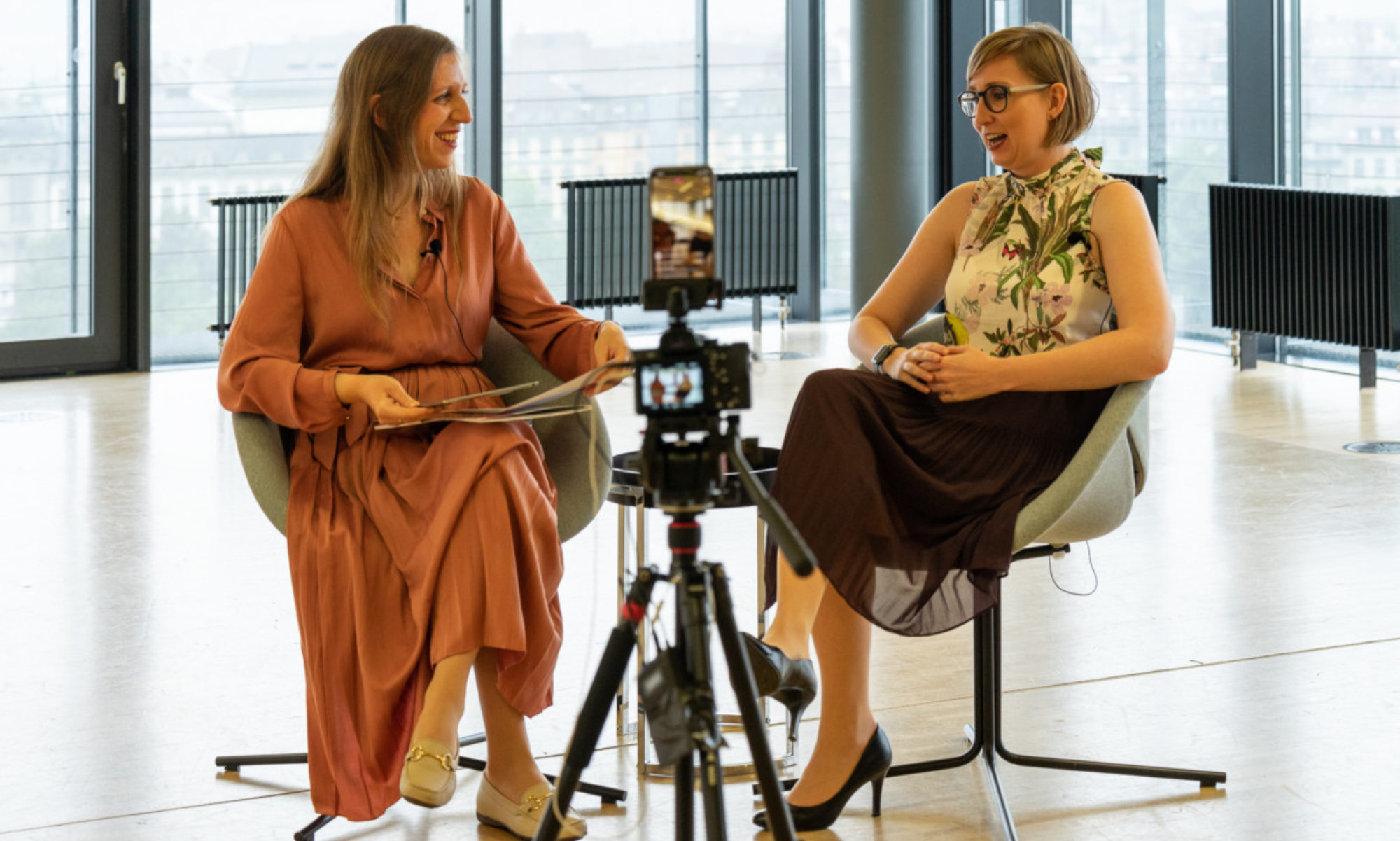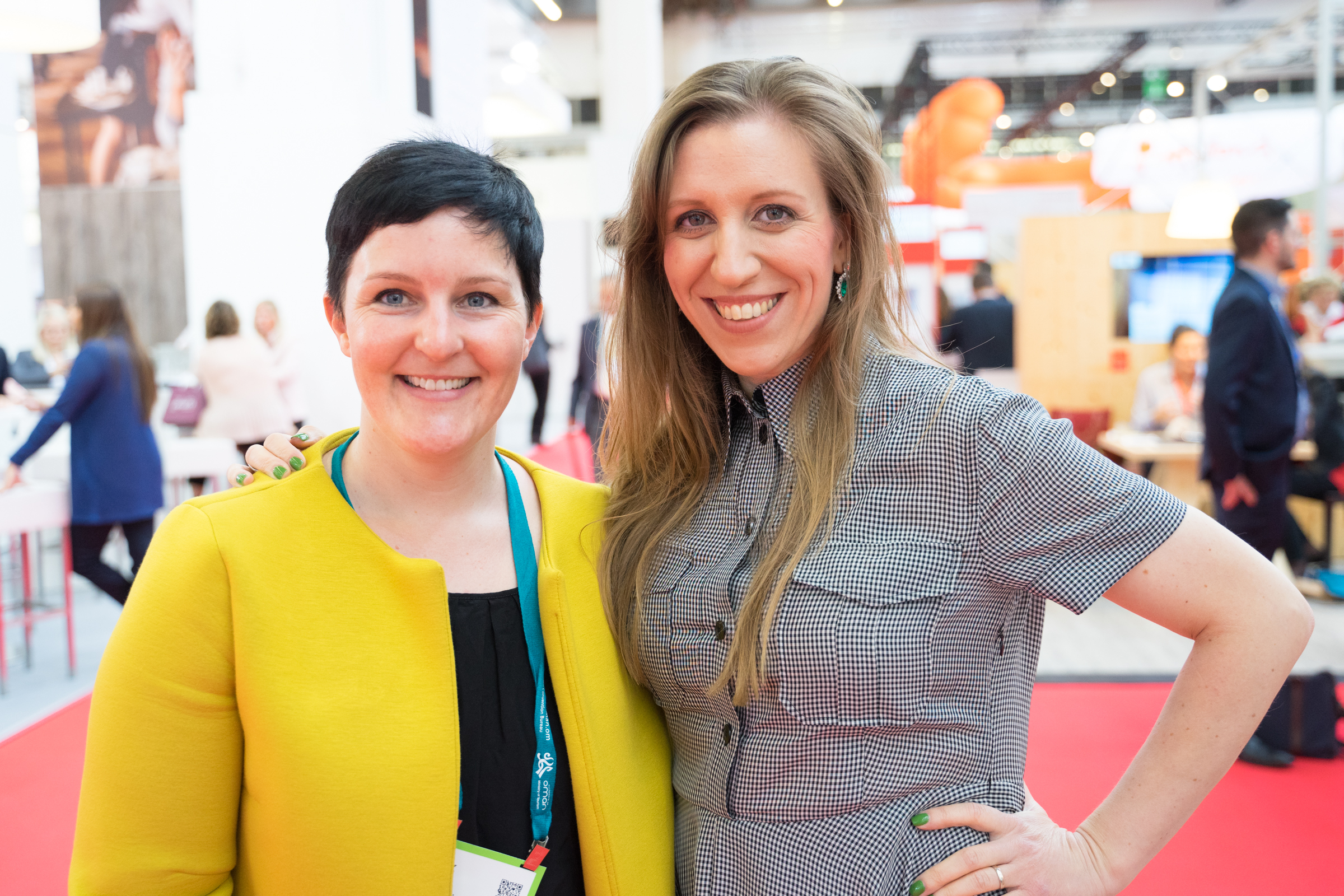Several recent industry discussions have demonstrated that companies retract from social media because they want to find different ways to strengthen relationships with their customers, primarily offline. For example, that was the case with the pub chain JD Wetherspoon and the cosmetics firm Lush in the UK. Additionally, increased attention is shifting to closed groups, such as Facebook Messenger and WhatsApp, where the focus is on strengthening community relations. Is it a trend that event planners should observe more closely and explore more ways of building their communities ‘offline’, or is it just PR hype?
To understand the latest developments of community management, both online and offline, we teamed up with Valerie Wagner from Hotel O Motion to host the #eventprofstalk Twitter chat about ‘Bye Bye Social Media, Welcome Social Web and Community Management: How can online communities be cultivated in the event industry.’
Valerie is a blogger and a podcaster specialising in digital hotel management. She has built an online community of hoteliers who receive constant updates from her about how to optimise their processes and customer experience in the digital age. During this chat with Valerie, we discussed why some companies choose to go offline and find new ways to communicate with their audience, as well as what new tools are available for community building. Many membership clubs, associations or networking groups of like-minded people do not always have a social media strategy and despite this fact, they successfully keep their members engaged via newsletters, information boards, print advertising and most importantly, events. How can corporate events strengthen their offline communities even further? This important question and others were discussed during this chat.
Bye Bye Social Media, Welcome Social Web and Community Management: How can online communities be cultivated in the event industry?
According to Robert Kenward, co-founder of YOU Search & Select, ‘community needs a dedicated management, for example, making it an invite-only group with criteria for acceptance. The admin team needs to keep things clean and grouped into specific areas or topics, guiding the content and discussion, whereas ideas are coming from the group and are user generated, but also having guests who are experts on the specific topic.’ Content on online platforms should be guided and moderated by the admins, otherwise it can become too promotional.
According to Valerie Wagner, founder of Hotel O Motion, she would join a community primarily because it involves ‘having a common interest. It has to do with emotions and whether I can identify with the values of the group.’ Sabrina Meyers, founder of Hot Hospitality Exchange, commented that ‘communities start when like-minded people get together and help each other. If the online community can offer this constant and consistently there will be growth; for example, The Delegate Wranglers group for event planners on Facebook.’ Sabrina also added that ‘there should be clear rules in place and needs identified.’ Irina Graf, founder of The MICE Blog and Event Planners Talk, agreed that ‘there should be rules to maintain the livelihood of the community; for example, limit, or even forbid the amount of self-promotion. Communities should also be self-regulated to a significant extent by the members with certain guidelines that they agree upon.’
Pauline Kwasniak, founder of TurnedSee, emphasised the importance of particularly niche meet-ups and platforms, ‘community members should be invited to speak at these events, and the community administrators should promote them, via a Facebook group or Twitter for example. All community members want something out of it. So, by promoting each other, they promote your community in return. Content is king.’
Irina shared that ‘communities develop as a result of uniting around a common topic, industry or a goal, and members are co-creating content or working collaboratively via other channels to achieve their goals. Communities have a strong support network and expertise. Live events provide a platform for communities to nurture these relationships and grow personally and professionally.’
We’ve discussed whether a community develops first offline and then moves the discussion online, or the other way around. Stephanie Braun, blogger at Kleiner Komet, commented that ‘perhaps it could help if some people know each other in real life, so they can start a community and then other people find their way to join the community.’ Valerie added that it can be done the other way around, too, when people join a digital group, that will lead to offline meetings as a result. It works both ways.’
When would you permanently join a club for a specific event?
Pauline shared ‘when it offers substantially high-quality business networking and the right match making between buyers and sellers’. Robert shared that for him, it’s worthwhile if he gains access to the stakeholders he needs to grow his business, and he was able to add value to the group by sharing knowledge, ideas and helping others. For Sabrina, if she has a need that is met by the club, she will then join. It may be to a network personally or professionally or to learn something on a common topic of the club (e.g., Ladies in Tech).
Stephanie commented that ‘if there is a good chance to network, I would join some kind of online group, but I think it’s important to get the people some stuff to talk about, before and after the event.’ For Irina, the business value should be there ‘when I know I have business value from it—it can be either personal development, networking or keeping up with industry trends, but it must bring my business forward and justify my time and money investment.’
Are closed groups, such as Facebook Groups, enough or do you need membership?
According to Valerie ‘it’s not good to depend on a particular platform, such as Facebook, because the algorithm is constantly changing. Facebook groups are currently popular, but for how long? At the same time, we need to see that the online groups are active and constantly publishing new updates to keep the members engaged.’ Irina agreed that ‘you can’t depend on just one social media platform, but at the same time, event organisers and community managers need to be where the attention is and where the members are. In case the platform changes suddenly, and its algorithm or a new platform gains in popularity, the group can transition and evolve as a community to a different platform.’ Valerie shared that the importance of having community members as advocates is key, and used as an example this #eventprofstalk community that grew to a large extent thanks to open communication on Twitter—she stated, ‘growing a community without social media doesn’t work, but bringing that power into a closed channel (e.g., event) is the art.’ Irina, the founder of this community, agreed that online communication and the choice of platform was key to its growth, ‘It wouldn’t have worked in a closed group because people will not be able to commit to weekly Twitter chats, but when the communication is public, people can join any time, when they have time, or follow passively on the go. People also have different offline personas, and not everyone wants to contribute; however, people like to read or share. This community has evolved from the Twitter chat to host live events, and also has a presence on Instagram and LinkedIn.’
According to Johnny Martinez, Head of Marketing and Business Development at Shocklogic, ‘membership makes sense when you can offer exclusive benefits to members. Facebook groups alone are certainly not enough to create certain types of exclusivity. The benefits of certain communities definitely rely on membership. Different networks can often improve the membership. But it’s hard to do any of this without the money and membership that provides long-term development.’
Katrin Lüthy, Founder and Green Event Specialist at Green Event Planner, thinks that ‘social media is indeed a fantastic place to get attention, but I believe that the actual business mostly comes from face-to-face meetings or networking events.’ Irina thinks that ‘communities can’t rely on membership only—there are too many of such groups, and each person belongs to many of them at the same time. Therefore, they need to offer a flexible format, where members can engage on their own terms when they want and how often they want to. To make it work, communities should be self-regulating to a significant extent, but they should also have an overall supervision, and the management ought to encourage discussions and organise live events.’
Conference Care Package shared that events need to ‘offer more natural ways for people to interact. It’s easier to get to know someone in a morning jogging group than at a reception—set up some sort of mentor program for new members.’
According to Sabrina, it’s about the objectives, ‘the benefits of having a formal membership is that the reach is more if it’s a membership in that you can cast a wider net. With Facebook groups, typically it’s more social and less business orientated, so it really depends on what your objectives would be.’
How should a membership differentiate from a network? Are there any differences?
According to Robert, ‘membership is an agreed return from your fee, networking is down to you to make it work.’ Irina commented that under membership, she understands ‘that there is a payment transaction to join the group, but for this there must be also a higher value proposition, such as more events and more formality. A networking group is more spontaneous and focused on building relationships for possible sales or public relations.’ Valerie added that ‘it’s worthless if it doesn’t cost anything.’ So, it’s recommended to have a fee to position the services as being more premium, but at the same time, the members’ expectations rise when there is a monetary exchange. In that case, Irina thinks that ‘a freemium concept can work, such as offering part of the membership for free, but others need to be purchased, such as a subscription or an event ticket. That way, the organisers can create a more niche and personalised product or event for those participants who are ready to invest more time and money.’
According to Johnny, ‘membership-based organisations enjoy membership fees, and members are often part of the governing council. Networks are mainly free and volunteer led, which comes with less budgetary responsibilities and less bureaucracy.’
For Pauline, the network should be the membership where ‘the network grows as the membership grows. At times, there will be people looking from the outside or joining one event before becoming members and that’s OK—make it exciting for people to become members but have rules, too.’ For example, at Pauline’s Travel Massive group, the members are only ‘travel trade’, and therefore attendees should be those participants involved in travel, trade, technology or blogging—‘you need to know what you want and who you want to attract to ensure high quality for other members,’ Pauline concluded.
Sabrina highlighted the example of membership clubs that offer spaces for members to enjoy themselves either privately or if they choose, by engaging with other fellow members. A network is built through a common purpose and goals. It in fact brings a highly diverse group of people together who are generally ‘creative’, and they have their ‘own’ space which they like.’
Conference Care Package shared that ‘open is the way to go because it is how you get new members onboard. Most people start out lurking. So, for example, when communication during the event happens on the app and not social media, it excludes the at-home audience. Lurkers become converts.’
What do you think the order is: 1. online, then offline or 1. offline then online?
According to Robert, ‘there is no a set rule of thumb for this issue, and geography plays a part in it, too: How often can you meet other community members face to face, for example?’
For Katrin, it’s first online, then offline. She also added that ‘millennials are surprisingly shy around people they’ve never met before, so ‘meeting’ someone online prior to attending an event can ease up this shyness’. But it is not only millennials who are shy, and for many people, the process will be easier if they are made aware that they can also bring friends.’ Stephanie added that ‘in the business setting, you get better in touch with new people when you’re alone, so it’s not that easy the first time.’ And she shared that sometimes she goes with people she knows, but then tries to separate during the event, ‘when we come together again, we have much to talk about. Sabrina said that ‘it depends on the individual. Online allows you to be ‘braver’ in a certain sense because you’re not face to face, which can to some be particularly intimidating’. Conference Care Package stated that ‘online leads to face to face with a relationship that deepens over the years from both approaches.’ Irina said that it can be both, but the advantage of starting online and transitioning offline is that you already know that you have a common interest and can develop the discussion topics further.’
Should member areas always offer benefits, or is the prospect of exchange among like-minded people sufficient? Would you pay for a member area?
For Valerie, the reason to join a membership area is a ‘very deep interest in a topic. If the interest is strong enough, I think that there should be extensive benefits because the interest is there. But in B2B, I consider that people expect benefits to see value from joining a membership group.’ Irina added that in B2B, if a company is paying for a membership, the benefits should be justified and listed as part of that membership—an interest in the group is not enough.’
Sabrina shared that ‘in general, if you are a ‘member’ you do expect benefits of some sort that you otherwise wouldn’t normally have access to—it’s that exclusivity of belonging to something and a particular ‘club.’ Irina concluded that organisers need to know the members well to understand what the benefits are for them, which benefits they would be ready to pay for as well as to meet the needs of the various stakeholders.’
Photo: Valerie Wagner and Irina Graf at IMEX Frankfurt, 2019


